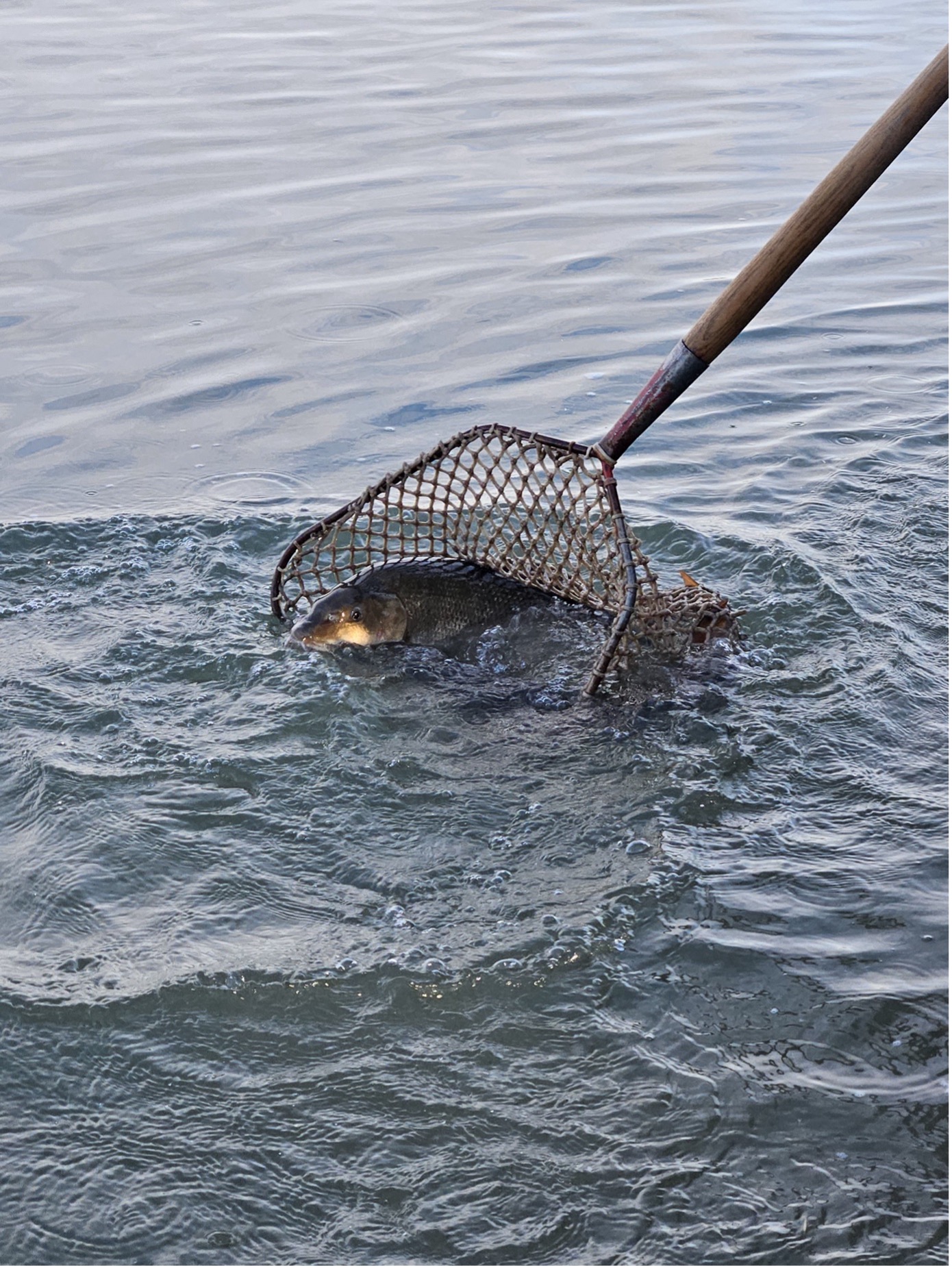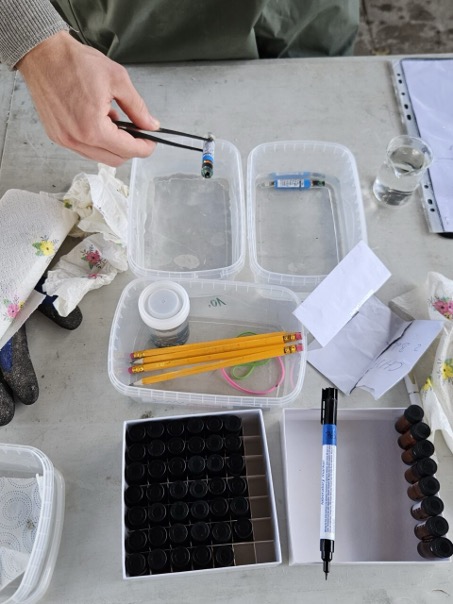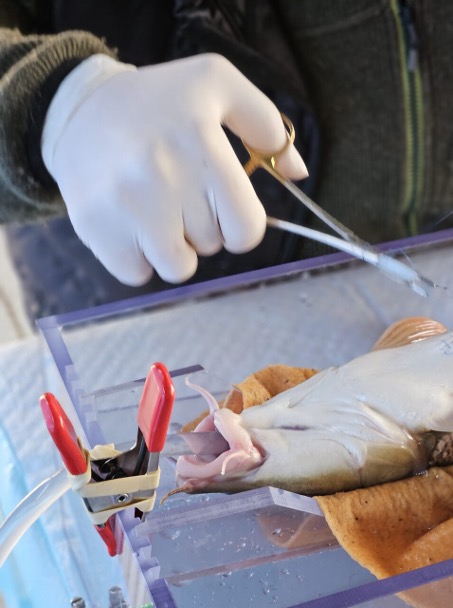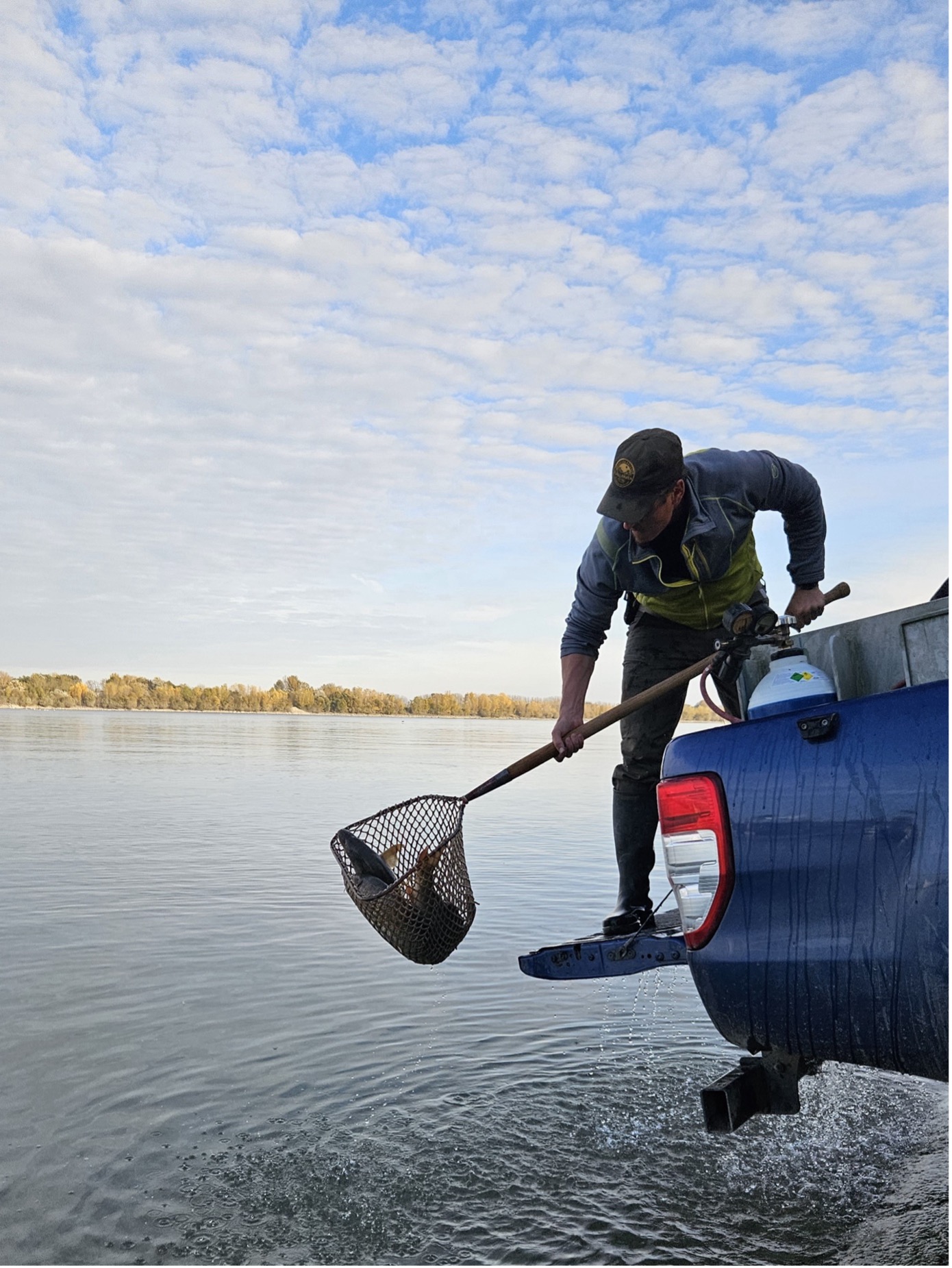On July 14 - 21, 2024, we attended the international bioinformatics conference IWBBIO 2024 organized at Gran Canaria by the University of Granada, Spain. Traditionally, dr. Urban led the section Intelligent systems and Machine Learning in Bioinformatics. We presented a lecture and a poster from the research activity and discussed with the other participants.
On November 5–6, 2024, a representative of the CENAKVA, FFPW JU, Vladimír Žlábek, attended the 4th Assembly of Beneficiaries meeting and the 8thSteering Committee meeting of the DANUBIUS-RI Implementation Phase (HORIZON) project in Barcelona (Universitat Politècnica de Catalunya). The meeting agenda included a review of the progress in implementing the legal entity Danubius – ERIC and the coordination of activities within the DANUBIUS-RI project.
- Fotogalerie:
- Foto:
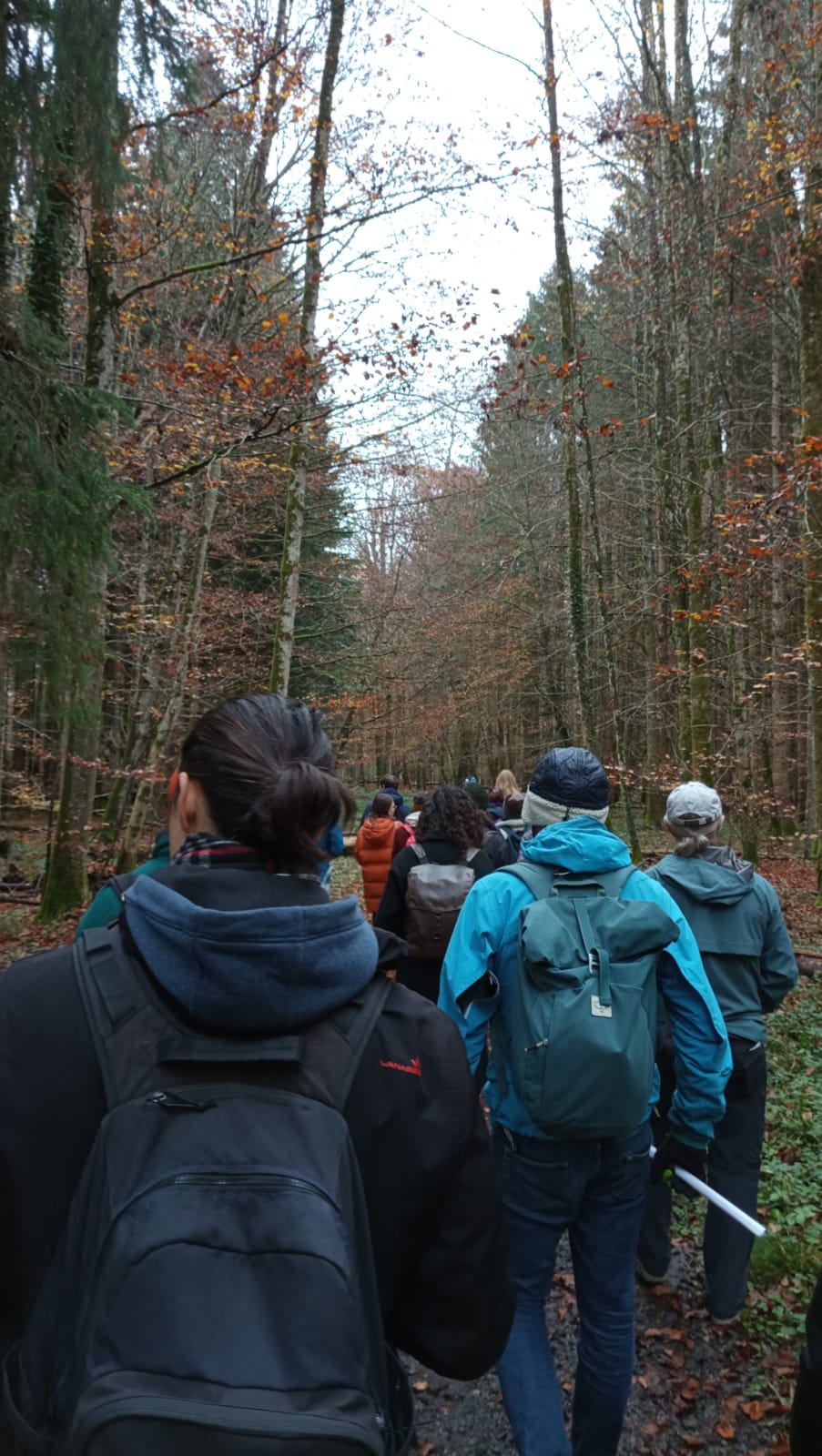
Species On the Move
Ismael Soto attended a two-day workshop in Zurich, focusing on the historical and interdisciplinary perspectives on invasive species. Organized by ETH Zurich and the University of Zurich, the event aimed to bridge the humanities and natural sciences in understanding the anthropogenic movement of species and its implications. I contributed to discussions on the conceptual history of invasive species and the sociopolitical frameworks that influence the perception of non-native species, historical trajectories of the non-native/native dichotomy, the role of invasive species in transforming ecological, political, and sanitary orders and connections between biotic nativeness and human discrimination discourses.
Recently, I was visiting (a four-month research activity) and conducting research work at Chulalongkorn University in Bangkok. The FID laboratory has extensive expertise in the field of infectious disease diagnosis and control and has a pleasant research environment and colleagues. I was conducting a series of laboratory and field research experiments to investigate emerging and infectious diseases in freshwater fish Nile tilapia, Red tilapia, and Snakeskin gourami to characterize the fact that production was declining. During the experiment period, we found various bacterial pathogens that were currently causing high mortality and economic losses in the local fish farms area such as Flavobacterium sp, Aeromonas sp, and Streptococcus sp.
The disease-affected freshwater fish samples were being collected from fish farms and were being subjected to preservation for bacteriology, PCR, histopathology, and sequencing. Additionally, a laboratory challenge experiment was conducted after the causative agent was confirmed from the affected fish with the CE FID research team at the Department of Microbiology. Furthermore, I was having productive discussions with colleagues regarding alternative strategies for controlling the disease-causing pathogen instead of antibiotics. Throughout the research period, we were continually analyzing the data and discussing our findings to develop more effective solutions. This short visit enabled me to learn new scientific techniques critical to the advancement of current research experiments and enabled me to establish valuable research collaborations.
In the framework of the Erasmus+ mobility program, I undertook research and training activities at the Department of Animal and Aquatic Sciences, Faculty of Agriculture, Chiang Mai University, Thailand, from May 17th to June 4th, 2024. I participated in fish-feeding trials within bio-floc aquaculture systems and in RNA extraction for research on gene expression related to immunity and nutrition.
On May 16 and 17, the Czech Food Fest 2025 event took place in Istanbul, Turkey. The Faculty of Fisheries and Protection of Waters USB presented a wide range of sterilized fish products, Sturgeon Friendly caviar and trout caviar. Other fish products from Czech aquaculture were represented by products from African catfish from Tilapia s.r.o.
The Czech Food Fest 2025 is an event under the auspices of the Consulate General of the Czech Republic in Istanbul and is very popular with local authorities and companies cooperating with the Czech Republic.
Anatolii Sotnikov and Borys Dzyuba have visited the Neutron & Muon Source at the UKRI STFC’s Rutherford Appleton Laboratory (Didcot, Oxfordshire, UK) for the experimental activity on the study of processes of water crystallization and its vitrification during fish sperm cryopreservation. The visit was arranged due to the involvement of the Laboratory of Reproductive Physiology of the FFPW USB in the trial experiment, which was oriented toward future collaboration in the field of cryobiology. We are grateful to the enthusiastic and highly professional team performing the experiment and looking forward to future cooperation.
During my two-month internship at Auburn University, under the supervision of Dr. Jim Stoeckel at the School of fisheries, Aquaculture, and Aquatic Sciences, I had the opportunity to delve into the fascinating world of burrowing crayfish. I acquired invaluable skills in sampling, maintaining, and studying the social and burrowing behaviour of these creatures, contributing to ongoing research projects. Additionally, I worked closely with Dr. Timothy Bruce, where I learned advanced molecular techniques and conducted stress assays, enhancing my proficiency in laboratory protocols and data analysis.
A significant highlight of my internship was visiting Dauphin Island, Gulf of Mexico, where I engaged in hands-on learning about oyster culture and farming at the Dauphin Island Shell fisheries Lab. This included activities such as seeding, monitoring, and harvesting oysters, which provided practical insights into marine aquaculture practices. This comprehensive experience not only enhanced my technical skills and knowledge in aquatic research but also broadened my understanding of the ecological and economic importance of sustainable aquaculture.
From 4th December to 5th December 2024 Ing. Tatiana Gebauer, Ph.D., and Ing. Radek Gebauer, Ph.D. participated in the Regional Workshop on Integrated Aquaculture Systems held in Tashkent, Uzbekistan. As invited speakers they presented 3 topics "Smart technologies in aquaculture systems", "Valorization of aquaculture sludge" and "Circular approaches in aquaculture product processing". The main objective of this workshop was to enhance knowledge, skills and cooperation among the participating countries.
All costs were covered by FAO.
From October 2023 to July 2024, I completed my PhD internship at the University of Calgary under the supervision of prof. Habibi. During my internship, I carried out two experiments to assess the effects of the fish's anti-progestin gestodene on the reproduction of zebrafish (Danio rerio). My stay at the university greatly benefited me as I learned how to conduct experiments with zebrafish independently and learned several new laboratory techniques. For example, I learned new methods of staining histological sections with their subsequent evaluation, determining plasma hormone levels, RNA extraction with TRIzol or ex vivo tissue culture. In addition, my 9-month stay in Canada helped me to improve my English skills and gain valuable collaboration for the future.
This internship was supported by the Erasmus+ program, the Czech Science Foundation (No. 22-19136S), the Strategic Management Support Program of the University of South Bohemia, the Faculty of Fisheries and Protection of Waters and prof. Habibi. I greatly appreciate all the financial support.
Exchange of professional and educational experiences in fish farming
On March 11th–15th, 2024, we completed a business trip to Latvia. We visited the Institute of Food Safety, Animal Health and Environment (BIOR) and its Aquaculture Research and Education Centre near the town of Kegums. Here, we exchanged professional and educational experiences in the field of fish farming with colleagues from BIOR and with local fish farmers. The main discussed topics concerned health issues, genetics, breeding, reproduction and culture of common carp and other species suitable for pond farming. We also had the opportunity to visit the nearby breeding facility of the BIOR, which specializes on the reproduction and re-stocking of Atlantic salmon, sea trout, pikeperch and whitefish. The facility produces also stocking material of sturgeon, common carp and rainbow trout for fish farmers. We could see also the impressive fish-rearing fall just before completion. The hall was divided into several separate rooms with recirculating aquaculture systems (RAS) for culture of fish broodstocks and their offspring. The knowledge gained will be used in the innovation of the courses of the bachelor's study program Fishery at our faculty. The journey was realized with the support of the USB project from the fund of the National Recovery Plan (goal A3) financed by the Ministry of Education, Youth and Sports of the Czech Republic.
Written by: Martin Kocour
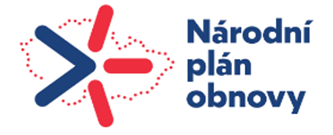
From 8th to 12th April 2024, a five-day excursion was made with Master's students for the subjects “Culture of Warm-water Fishes” and “Pond Aquaculture“. A total of 20 different fish farms in the Czech Republic and Slovakia – fisheries, fish hatcheries, organizations, fish flow-through and recirculation farms, cage-fish culture, ponds, aquaponics, water structures, fish processing objects, fish shops, exhibitions, etc. The program included tasting fish specialities (ham, smoked fillets, sausages and spreads from African catfish, carp pate, etc.), but also participation in the artificial spawning of the Danubian salmon and a discussion with the SRZ Registrar. A total of eleven facilities were visited in the Czech Republic: Chov ryb Vaněk Josef, Tilapie, s.r.o., Vodní dům, Future Farming, a.s., Jezírka Banat, s.r.o., Rybníkářství Pohořelice, a.s., ZD Hrotovice, MO MRS, z.s., MO MRS, z.s., Rybářství Lipnice, s.r.o. and „Kapří paštika“ in Poříčí. A total of nine facilities were visited in Slovakia: MO SRZ, o.z., Rybárstvo Kamenný potok, s.r.o., Rybárstvo Krpeľany, Slovryb, a.s., SRZ Rada – Liptovská Mara a Slovianska dolina, PETRA-AQUA s.r.o., Agro rybia farma, o.z., and Gabčíkovo waterworks.
The excursion was realized thanks to the financial support of IAPW resources for teaching. We hereby thank the faculty management for their support!
Prof. Ing. Jan Kouřil, Ph.D., Ing. Ján Regenda, Ph.D. a Ing. Markéta Dvořáková Prokešová, Ph.D.
On 6th and 7th March 2024, a short visit was made to the United High Schools in Ivanka pri Dunaji, Slovakia. This institution celebrated the 30th anniversary of the establishment of the high school fisheries education in Slovakia. The delegation from the Faculty of Fisheries and Water Protection of SBU consisted of Prof. Policar, Associate Prof. Kocour and Dr. Regenda. The programme included a tour of the school, a short cultural programme and a social evening. Among the invited guests were former teachers, graduates of the school and a number of fish farmers from the whole Slovakia, partner fisheries schools from the Czech Republic and several guests from Hungary. The programme also included the awarding of several prizes for lifelong work and contribution to the development of the school and its fisheries education. The new management of FROV JU discussed with the Head of the school the possibility of our further and deeper cooperation in the mode of a faculty high school.
SETAC 2024, Spain
From May 5th to May 9th, 2024, at the SETAC Europe 34th Annual Meeting in Seville, Spain, employees of the Laboratory of Environmental Chemistry and Biochemistry, Vladimír Žlábek, Roman Grabic, Kateřina Grabicová, Ganna Fedorova, Helena Švecová, Anna Koubová, Alina Sadchenko, Petra Novaková, and Gayani Kumari Kapukotuwa Rajakaruna Wasala Mudiyanselage, participated.
During the conference, Roman Grabic and Ganna Fedorova delivered vivid oral presentations, capturing the audience's attention to the critical aspects of our research. The other delegation members presented their research in seven posters, allowing them to actively interact with colleagues, discuss their findings, and receive feedback. The delegation successfully showcased its scientific achievements and actively participated in discussions and idea exchange.
Tomáš Randák, Roman Grabic and Vladimír Žlábek from the Laboratory of Environmental Chemistry and Biochemistry participated on the 4th International Conference on Environmental Pollution, Restoration, and Management (ICEPORM 2024), which was held in Quy Nhon, Vietnam from March 3rd to 7th 2024. The goal of the conference was to meet scientists from developed and developing countries, transfer knowledge, and establish cooperation in environmental protection. During the conference, we presented two expert lectures and one poster. After the end of the conference, the foreign participants met with the deputy prime minister and the minister of the environment of Vietnam in Hanoi.
Studenti Fakulty rybářství a ochrany vod (FROV JU) zorganizovali 20. listopadu ve studentském klubu Kampa, přímo v kampusu Jihočeské univerzity v Českých Budějovicích networkingovou akci „Aquaculture in Europe“.Cílem akce akce bylo propojení studentů akvakultury a podobných oborů napříč celou Evropou.
Lenka Kajgrová a Tomáš Pěnka, kteří zastupují Českou republiku ve studentské skupině Evropské asociace pro akvakulturu (EAS-SG), společně s Alžbětou Strouhovou a Anılem A. Tellbüscherem, pozvali na tuto neformální akci nejen studenty FROV JU, ale také vědce a další nadšence z Jihočeské univerzity, České zemědělské univerzity v Praze a Mendelovy univerzity v Brně. Cílem bylo představit mezinárodní rozměr akvakultury, inspirovat studenty k získávání zkušeností prostřednictvím zahraničních stáží a poskytnout jim kontakty, které jim mohou pomoci právě při získávání těchto zkušeností. Prvního ročníku této akce se zúčastnilo 15 hostů z České republiky a 11 hostů z dalších šesti evropských zemí. Členové EAS-SG využili pobyt v jižních Čechách také k účasti na třetím zimním workshopu EAS-SG, který se konal v Mezinárodním environmentálním vzdělávacím, poradenském a informačním centru pro ochranu vod (MEVPIS) ve Vodňanech.
Organizátoři děkují Jihočeské univerzitě v Českých Budějovicích a společnostem Sparos Lda a Pannonia Bio Zrt. za finanční podporu, díky níž se networkingová akce a workshop mohly uskutečnit. Poděkování patří také aktivním studentům FROV JU, kteří přispěli k hladkému průběhu workshopu.
Organizační tým:
- Anıl A. Tellbüscher (EAS-SG, zástupce Německa)
- Lenka Kajgrová (EAS-SG, zástupkyně České republiky)
- Tomáš Pěnka (EAS-SG, zástupce České republiky)
- Alžběta Strouhová (zástupkyně FROV JU, Česká republika)
She is active and alert, but overcoming some barriers is beyond her. The Common barbel (Barbus barbus) is one of the original inhabitants of our rivers. This fish, like sturgeons and asp, needs free movement in the water to live and reproduce. However, migration barriers, in the form of dams, dykes and other concrete structures on watercourses, make it difficult to move naturally in rivers.
The Common barbel is a fish that moves through different parts of the river during its life to find suitable conditions for breeding, growing or wintering. Unfortunately, the migration routes it uses to do this are increasingly blocked. In Slovakia alone, almost 1 500 known barriers cross rivers, up to 80% of which prevent fish from migrating. This has resulted in a decline in the abundance of parma and other native fish species, as well as a general disruption of river ecosystems.
Telemetric monitoring as a conservation tool
Within the LIFE Living Rivers project, important activities are taking place on four Slovak rivers. One of them is the Danube, in whose waters experts are monitoring the movements of several native fish species, including the common parma.
In April 2024, telemetric monitoring was launched on a 97kilometre stretch of the Danube by a research team from the Faculty of Fisheries and Protection of Waters of the University of South Bohemia (FFPW USB) led by Dr. Bořek Drozd in coordination with the Slovak Fishermen's Association. While in the initial phase the scientists focused mainly on monitoring small sturgeon, now it is also the turn of the common barbel. At the end of October, the experts fished 50 specimens out of the Danube waters, which were implanted with small transmitters by a veterinarian. The fish were then released back into the Danube.
Telemetry devices will allow experts to track the barbel's onward journey through the river. As well as providing scientists with valuable information about their location, even the temperature or depth of the water they swim in, they will also help them detect problematic stretches of the Danube and identify the migration obstacles that make their lives most difficult. The results of the research will also help to design appropriate measures to make the water structures that prevent fish from migrating more accessible.
The future of rivers and the Common barbel
Healthy and flowing rivers are an integral part of our environment and the landscape we share. In addition, they provide shelter for many animals not only under the water surface but also in their surroundings. Protecting parma and other fish species is an important step towards promoting biodiversity and stability in our aquatic ecosystems. The LIFE Living Rivers project envisages the restoration of migration corridors that will allow fish to move freely through rivers to fulfil their role in freshwater ecosystems.
If the conditions for fish migration can be improved, this will be a success not only for the fish themselves, but also for the whole river communities that are an integral part of our nature.
More information here and here.

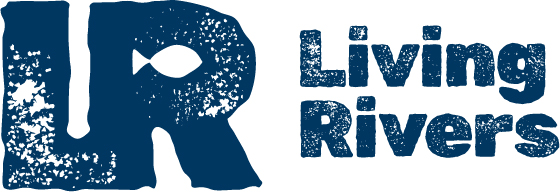
- Fotogalerie:
- Foto:
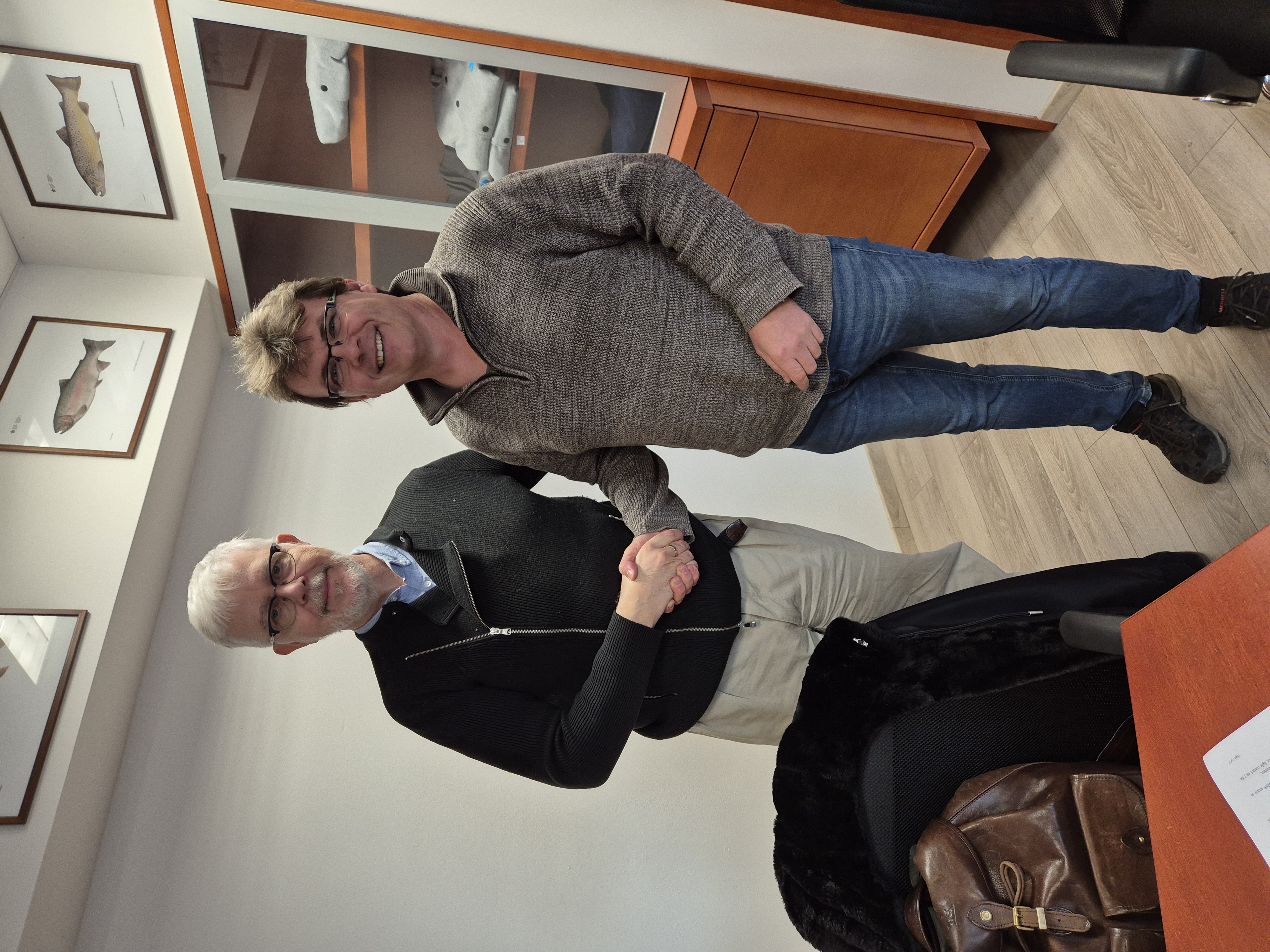
Dean of the Faculty of Fisheries and Protection of Waters USB, prof. Tomáš Policar, Ph.D., signed on 11th November 2024 an agreement on mutual cooperation with The Northern Sturgeon Company Limited (Hið Norðlenzka Styrjufjelag ehf.), Iceland, which allows students of our faculty to gain valuable experience on sturgeon farming directly on an Icelandic sturgeon farm.
On November 20th, “Aquaculture in Europe”, a networking event organised by students from the Faculty of Fishery and Protection of Waters (FFPW) took place at the Student Club Kampa on the University Campus of the University of South Bohemia in České Budějovice.
Lenka Kajgrová and Tomáš Pěnka, who are the Czech country representatives in the European Aquaculture Society - Student Group (EAS-SG), Alžběta Strouhová and Anıl A. Tellbüscher invited FFPW students, scientists, and also interested students from Prague and Brno to attend an informal event where they had the chance to get in touch with aquaculture students from other European institutions. The aim was to provide a glimpse into the international dimension of aquaculture, to motivate students to broaden their horizons by going abroad for an internship and to provide them with the right contacts to do so.
15 guests from the Czech Republic and 11 guests from 6 other EU countries were welcomed during the first edition of this event. The EAS-SG members made further use of their stay by attending the 3rd (EAS-SG) Winter Workshop, which took place at the International Environmental Education, Advice and Information Centre for Water Protection (MEVPIS) in Vodňany.
The organisers would like to thank the University of South Bohemia and the companies Sparos Lda, Pannonia Bio Zrt. for their financial support, without which the networking event and workshop could not have been possible. Last but not least, thank you to all the active students of FFPW USB who contributed to the smooth running of the workshop.
Organizing Committee:
- Anıl A. Tellbüscher (EAS-SG Country representative Germany)
- Lenka Kajgrová (EAS-SG Country representative Czech Republic)
- Tomáš Pěnka (EAS-SG Country representative Czech Republic)
- Alžběta Strouhová (Representative of FFPW USB, Czech Republic)
I completed a three-month internship at the University of Molise, Department of Agricultural, Environmental and Food Sciences. I am conducted a series of laboratory experiments with Mediterranean brown trout (Salmo cettii) sperm.
The additional key focus of internship was involvement in the after NatSalMo project activities, related to the conservation of native Mediterranean brown trout (Salmo cettii). I joined in both laboratory and field activities at Biferno river (Adriatic basin) and Volturno river (Tyrrhenian basin) (Molise region, Italy) that include capture of breeders, collection of semen, fertilization with frozen semen, incubation of fertilized eggs.
The visit provided an immersive learning environment and helped me establish valuable research collaborations. I am grateful for the funding support provided by the Erasmus+, PPSŘ project and RVO of the FFPW USB for this valuable internship opportunity.










